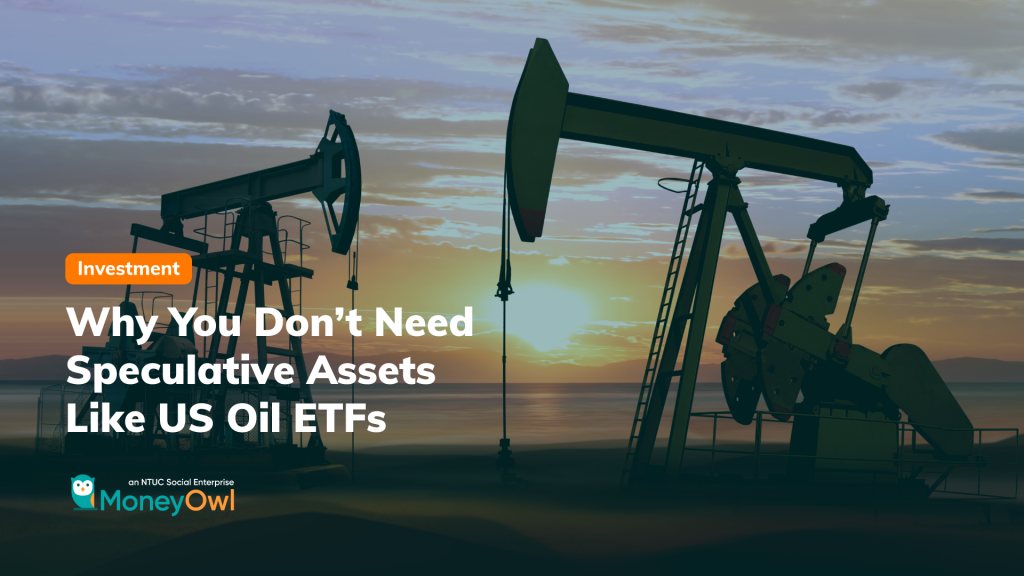Note: It was announced in November 2023 that MoneyOwl will be acquired by Temasek Trust to serve communities under a re-purposed model, and will move away from direct sale of financial products. The article is retained with original information relevant as at the date of the article only, and any mention of products or promotions is retained for reference purposes only.
______________
I just read an article in Forbes that placed the responsibility of the historic plunge in oil prices to below $0 to US Oil ETF, USO. The ETF had recently owned 25% of the May WTI oil futures.
Futures, including commodity futures, started as hedging tools for buyers and sellers of the actual commodities to get certainty in prices.
They Are Mainly Speculations Which Distort Prices
However, today, futures and the ETFs that buy them are bought and sold by many who have no connection to the physical. The fault is not with ETFs, in general, any more than it is with futures as instruments per se. The problem is that buyers/sellers of commodity ETFs are essentially making speculative buys/sells on oil price — even if this is a “real” investor or Robo-advisor advocating long-term investing with an allocation to commodities. Speculative investing is an oxymoron and distorts prices, as we have seen.
As with all speculation, trying to get the direction of prices right consistently and overtime is ineffective and stressful, and can hurt your long-term goals.
What Should We Focus On For Our Long-Term Goals?
At MoneyOwl, we advocate long-term investing in globally-diversified portfolios invested in equities as the way to build one’s wealth, with bonds providing a stabilising impact on the volatility of the portfolio because of lower tolerance or shorter time horizons.
We stick to equities and bonds and instruments that buy them (not those that synthetically mimic price movements) as staples. Because this is basically investing in real companies with real businesses, and we know that whatever happens in the short term of 1-2 years, the stock market always recovers because demand always recovers, driven upwards in the long term by global population growth in the long term; and if you are globally diversified in broad markets it does not matter even if some companies die.
It’s simple, but it’s tried and proven, by both economic logic and by the history of markets.
So we really don’t need speculative assets — the world’s real growth is sufficient. Your future retirement and life goals are too important to give up reliability for gambles, and your current mental wellbeing too precious to be given to the speculative bets either of your own or of advisers or fund managers. In the meantime, during the extended circuit breaker measures, do review your finances comprehensively with MoneyOwl – it’s free for a limited time only!
Yours faithfully,

Chuin Ting Weber, CFA, CAIA
CEO & CIO, MoneyOwl




